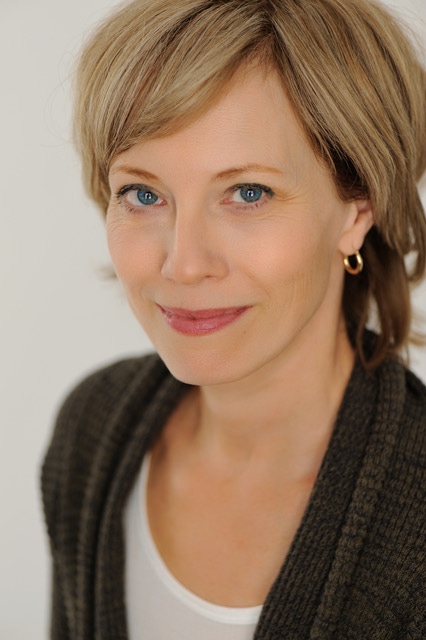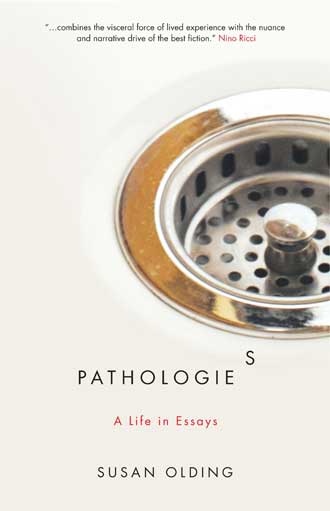Contributor Spotlight: Susan Olding
 Susan Olding’s essay “Odd Jobs” is part of the special international section “Place & Space in Canada” in Issue 74 of the Bellingham Review, which will be available mid-April 2017. Subscribe or purchase a single issue through our Submittable page here.
Susan Olding’s essay “Odd Jobs” is part of the special international section “Place & Space in Canada” in Issue 74 of the Bellingham Review, which will be available mid-April 2017. Subscribe or purchase a single issue through our Submittable page here.
What would you like to share with our readers about the work you contributed to the Bellingham Review?
I started with form, as I often do. I wrote the first draft of “Odd Jobs” in the first person, focusing on my own working life. That version bored me, so I scrapped it. But I wasn’t ready to give up on the idea of a hermit crab essay structured around want ads. I also liked the challenge of trying to write a whole life history in approximately 1500 words.
At some point, it occurred to me that men in the middle decades of the twentieth century were especially defined (and confined) by their jobs, so writing about my dad’s life through the lens of his employment history might reveal his character while also illuminating aspects of the culture.
My relationship with my father was not an easy one. I’ve written about it in the past and I resist going back to the subject, but this was a different approach, and I feel as if I made some discoveries, instead of just revisiting the same old ground.
I suspect this piece may become part of a series about family, but it’s a bit early to say since I’m currently trying to finish a very different project.
Is there a Canadian aesthetic to writing about place and space? What impact does that have on your writing?
I don’t know if there’s a particular Canadian aesthetic, period. I doubt it. I think an artist’s relationship to her environment will always inflect her work, but Canada is a huge and diverse country with a complicated (and in some ways shameful) history—so my Canada might not be another writer’s. I write from this place, and often (but not always) of this place, and—depending on the project—you could say I seek to understand this place. But there’s nothing uniquely Canadian in that.
Tell us about your writing life.
I’ve been writing seriously for about twenty years. I have written and published memoir, personal and lyric essays, poetry, and also fiction, though the essay is where I feel most at home. I’ll leave it to others to identify consistent images, questions, obsessions, but I can say that I always write out of a need to elucidate felt connections, to make sense of images or relationships or situations that trouble or puzzle me.
Which non-writing aspect(s) of your life most influences your writing?
My family.
What writing advice has stayed with you?
Form is the shape that feeling takes (Ali Smith). Not advice, exactly, but something that affirms me in my sometimes frustrating obsession with structure. Complicated feelings sometimes demand unconventional shapes for their best and truest expression.
Also: Stare at anything long enough and its literary archetypes will reveal themselves (Jim Paul). I might be misquoting slightly, but that is the gist. This is especially valuable to remember when writing nonfiction.
What is your favorite book(s)?
Favorite writer(s)?
Favourites are not just hard, they are impossible. (See how I slipped that Canadianism in? So sneaky.)
What are you reading right now?
I’m writing this note on International Women’s Day and in honor of that I just re-read (or actually, listened to, as an audio book) Chimamanda Ngozi Adichie’s We Should All Be Feminists. In the last couple of weeks, I read Jackie Kay’s warm, funny, and wise memoir, Red Dust Road; Diane Middlebrook’s Her Husband (about the creative partnership between Sylvia Plath and Ted Hughes and the ways they influenced one another’s work); Ruth Ozeki’s A Tale for the Time Being; and Suzanne Buffam’s A Pillow Book.
I’m trying to alternate poetry, fiction, and nonfiction this year. I am also consciously choosing more writers of color, more writers in translation, more Indigenous writers, more LGBTQ+ writers. Up next, I think, is Natalia Ginzburg (A Place to Live). Although according to my system I should probably be reading another book of poetry or a novel. As you can see, I am all for mapping things out and then going off the trail.
What project are you working on now?
I’m finishing a book of essays about reading and the books that mark our lives. At least I hope I’m finishing it. I’ve been finishing it for the last 18 months. I’m also working on a hybrid project—poetry and lyric essay—about transnational, transracial adoption. And eventually I want to return to a YA novel and a novel for adults. In other words, as my mother used to tell me when I’d take a second helping that I couldn’t finish, my eyes are bigger than my stomach. But I will complete at least a couple of these in the next few years.
Anything else our readers might want to know about you? (Tell us! Brag, be quirky, share those random facts, hobbies, or claims to fame.)
Brag? Hang on. This is the Canada issue. We’re way too polite for that.
Where can our readers connect with you online?
SUSAN OLDING is the author of Pathologies: A Life in Essays, selected by 49th Shelf and Amazon.ca as one of 100 Canadian books to read in a lifetime. Her writing has won a National Magazine Award (Canada), and has appeared in The L.A. Review of Books, Maisonneuve, The Malahat Review, The New Quarterly, and the Utne Reader, and in numerous anthologies including Best Canadian Essays, 2016 and In Fine Form, 2nd Edition.
Featured Image: “Canadian (T)Railway” by M. Richi